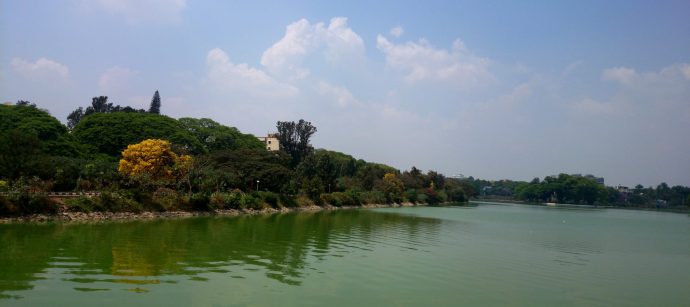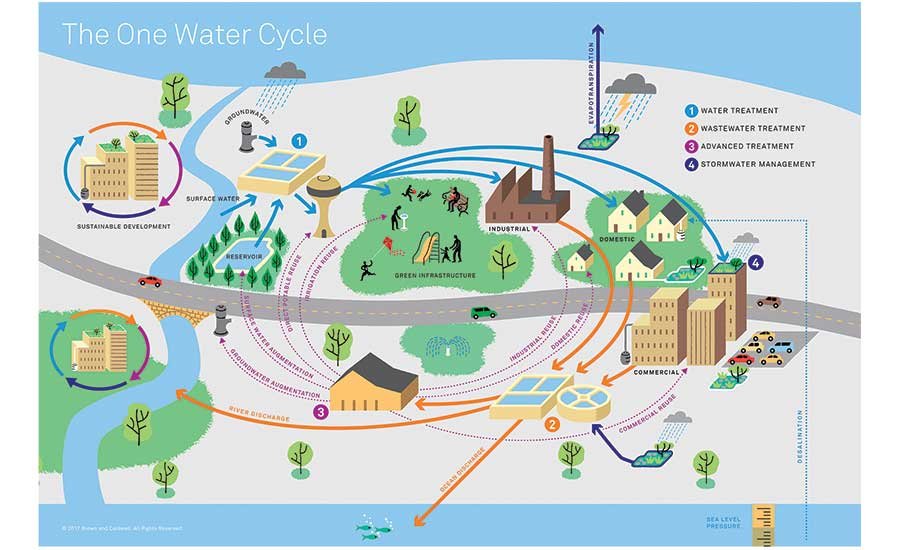the future of urban water systems: building a community-based information system in india

As our urban cities expand into sprawling agglomerations and the demand for water catering to an increasing urban population and other competing uses rise, managing our limited water reserves becomes of crucial importance. Building a community-based information urban water systems is still a dream in many cities.

Read more at https://www.deccanherald.com/residents-wary-encroachment-715140.html
The water woes in India
However, our policy landscape – at both national and state levels, has often struggled with imbuing the dichotomous (being free and yet scarce) nature of water.
Furthermore, Indian cities are experiencing a rapid pace of urbanisation, haphazard development, changing socio-political characteristics – conditions under which water problems cannot be dealt with one issue at a time.
In peri-urban areas, heavy dependency on groundwater is rampant, while being disconnected to piped water supply systems/practices and integrated storm water drains. This is causing a state of severe water crisis, with Chennai becoming the first city facing the aftermath of this mismanagement (Sharma, 2019).

These changes are often accompanied by a gradual erosion of traditional water sources and water-holding areas and a concurrent rise in the incidence of floods. With the rising threat of climate change and impact of human activities, it has become important to reconsider how we manage water from a holistic perspective and integrate various approaches to ensure better accountability for its long-term sustainability.
Critical need for urban water system
The concept of integrated urban water systems isn’t radical, but, the single biggest obstacle remains the lack of monitoring systems in place to track the volume of water in urban areas. With emerging technologies in mobile computing, geographical information systems, internet of things and data analytics, cities can implement decentralised systems for managing information regarding the urban water infrastructure especially within the context of Smart City Mission and Smart Water Management .

Credit: Engineering New record
The HydroGrid TM (conceptualised by Yeghiazarian & Nistor, 2018), provides a great framework for contextualising a natural and interconnected system of water, similar to electrical grid systems, but focus on supporting water flows through various biological and physical systems. The sustainability of the approach rests on how often functions of monitoring, analysis and control occur over various aspects of water supply, distribution and consumption.
Integrating these across the scales of local, regional and national scales could reveal the interconnectedness of various systems and the dependencies between them.

For example, the depletion of groundwater sources causing the higher presence of fluoride in groundwater supply, or the leaching of harmful industrial waste into the local ponds or lakes causing a disturbance in flora and fauna, both could be measured using mathematical methods for grid management, currently being used in the grid management.
One of the benefits of such a system is that it could provide communities and local governance bodies with crucial information regarding the changes in water availability in the area, impact of various planning processes on aquifers, tracking effects of weather disturbances such as excess rainfall on both surface and underground water reserves.
Measurements about water volume would help in initiating conversations around metering initiatives for community sources such as tankers, bore wells etc. Successful accounting systems such as metering for underground reserves would not only allow for better resource management for these supplemental sources but also further dialogue on tariffs that could fund the maintenance activities such as regular de-silting and cleaning, systematic water quality tests etc (Nilekani & Vishwanath, 2016).
Furthermore, better water quality would be helpful in designing localised interventions for better water management standards, which produces improved public health results in these areas.
Responsive urban water systems for communities – some anecdotes from Bangalore

Credit:Ramesh NG from Bangalore, INDIA [CC BY-SA (https://creativecommons.org/licenses/by-sa/2.0)]
Against the backdrop of systemic inadequacies in local governance bodies and municipalities, there has been an increasing involvement of civic societies and citizen-led monitoring activities using decentralised systems. Field testing kits such as the ones designed by the Foundation for Environment Monitoring (ffem) and increasing focus on open source initiatives for building small data for local for action such as Bangalore Lake Dashboard (Mira), Urban Waters Bangalore (Link), etc. are being built to improve the availability of data regarding urban water sources.
However, further efforts are needed to
- assess and improve the contexts for data use;
- engage data users and data producers;
- improve data quality;
- improve data availability;
- identify information needs;
- build capacity in data usage core competencies;
- strengthen the data demand and use infrastructure
- monitor, evaluate, and communicate the results of data use interventions.
Additionally, working with governments, organisations, and corporates to conduct assessments that identify strengthen ways for improving data demand and skills, processes, and build national and regional data infrastructure to support data-informed decision making is required to ensure a semblance of relevance and standardisation across these institutions. This will help in building robust urban water systems to address growing water woes.
